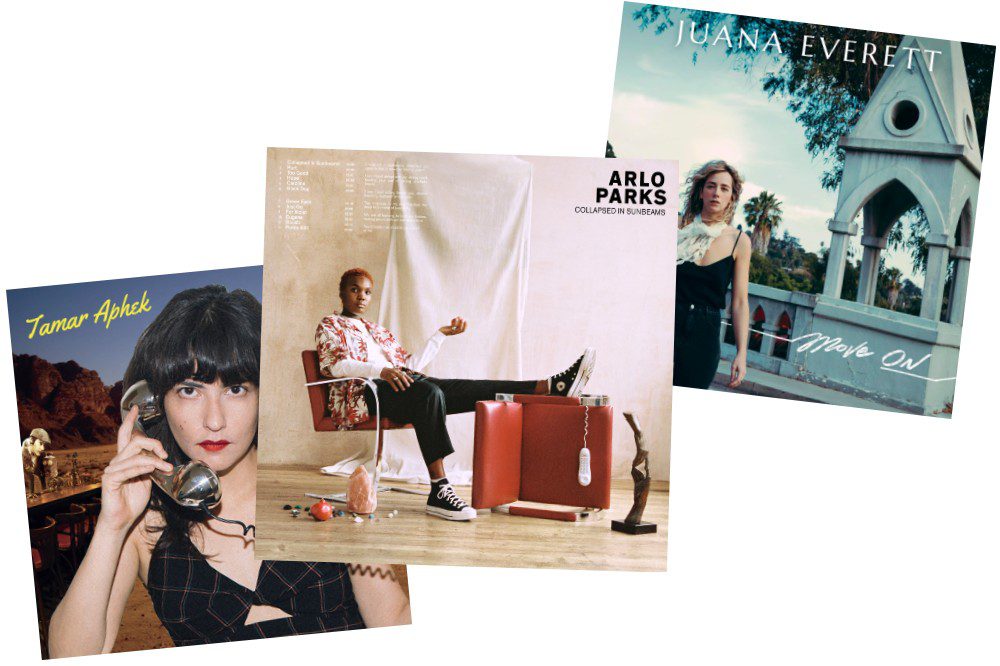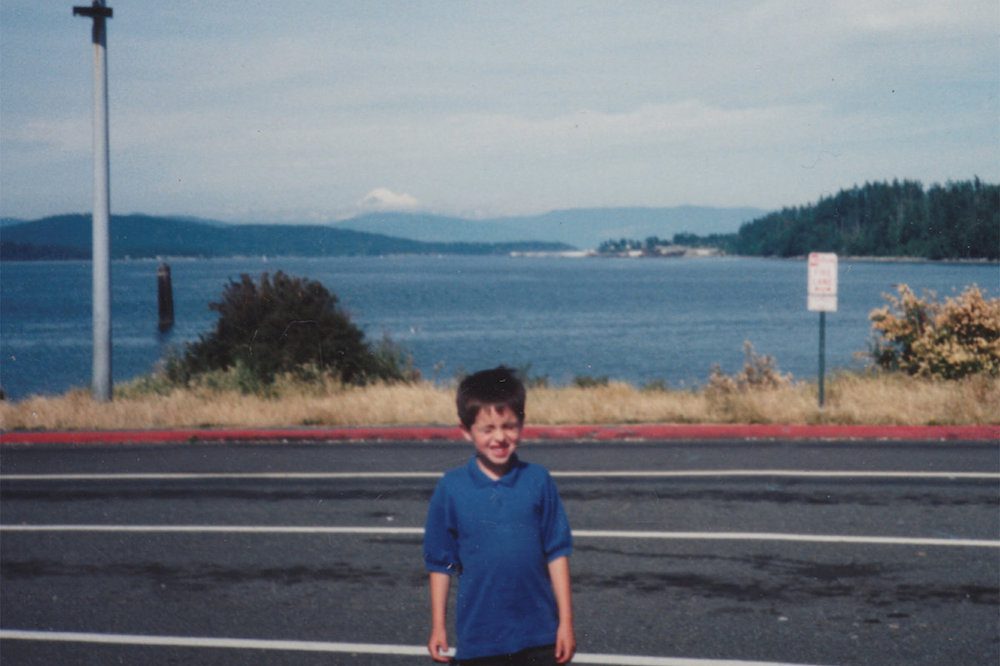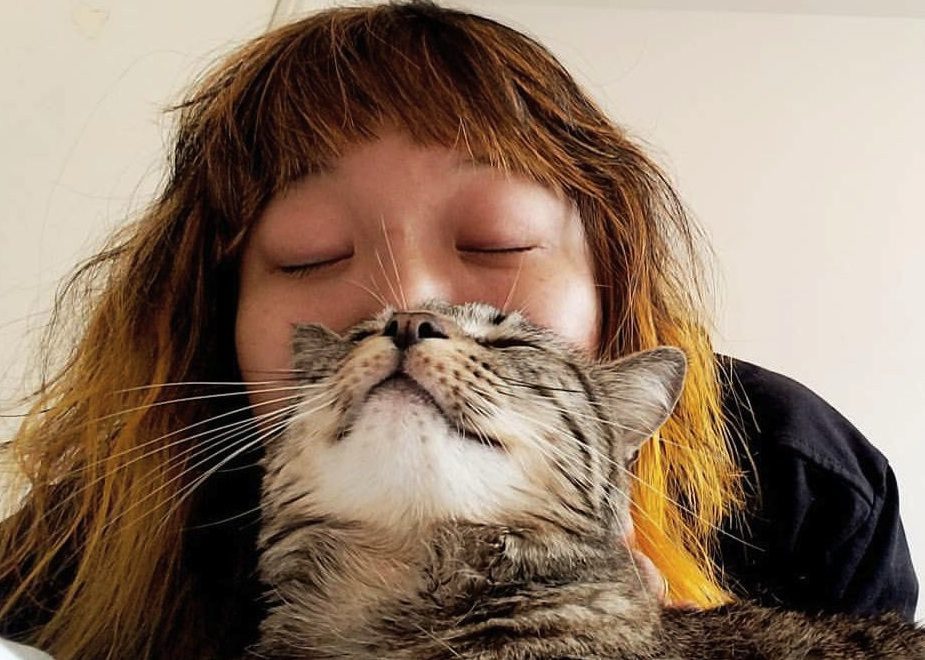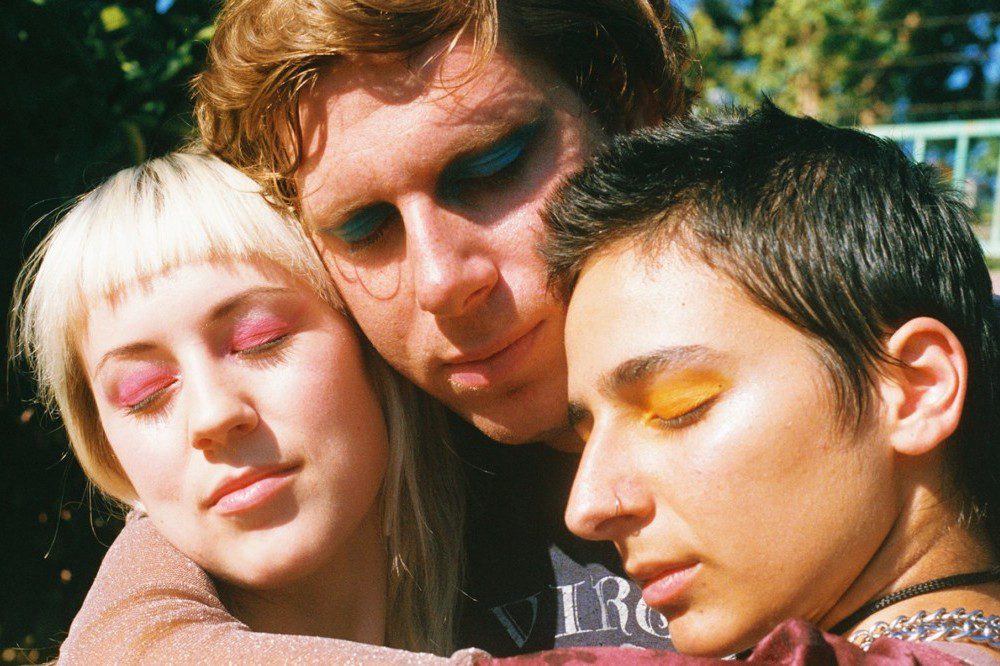
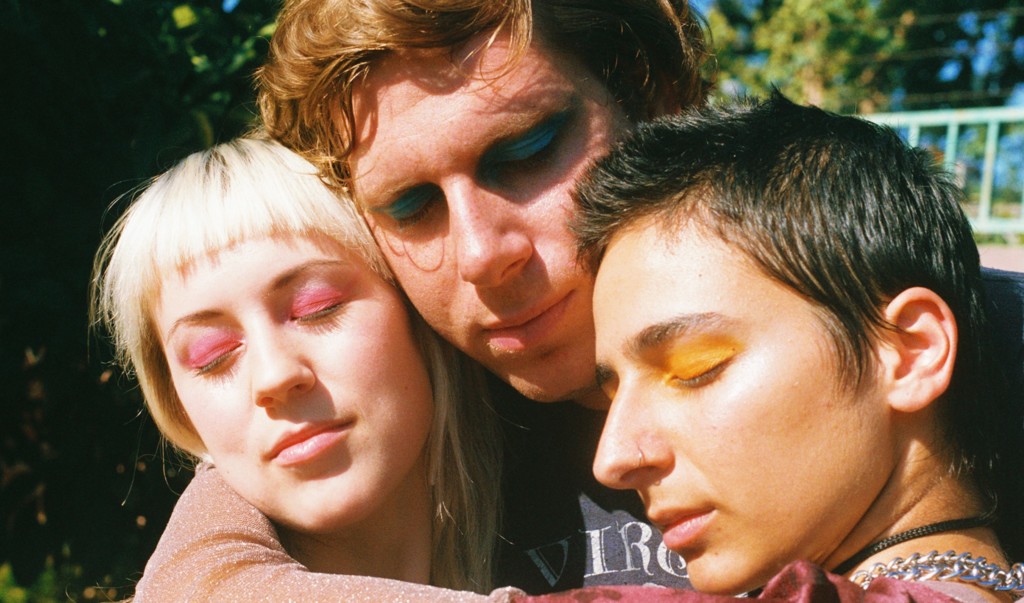
Sour Widows are here to educate the big-city people on the art of slowing down. “[Our music] has this lackadaisical, small-town vibe to it” says Maia Sinaiko, singer and guitarist for the three-piece Bay Area band. This can certainly be said of “Tommy,” the preview single for their new EP, which invites the listener to meander between the warbling vocals of Maia and fellow bandmate Susanna Thomson. Their two voices almost break as the song reaches its punky crescendo and plunges into the sort of brokenhearted entreaty that precedes a post-breakup hair-dying montage: Are you gonna be the one I think of?
I had the pleasure of speaking to the whole band last week to get some insights on the new song, their Bay Area roots, and what’s next for Sour Widows.
I had to ask about the band name, of course. “It’s a weed strain,” Susanna tells me with a laugh. “We just thought it sounded really punk.” But as is the power of most throwaway jokes, it stuck, and now they love it. “We’ve like, matured into it,” she says, though I still sense a smile in her voice.
This theme of “maturing into things” comes up often, from performance style to lyric creation to cultural history. Having started out as just “two guitars and two voices,” according to Maia, the band has already lived a few different musical lives. Now, they have the welcome challenge of thinking about lyrics and guitars as the initial building blocks rather than the finished project. Even the oldest songs on the EP, created long before the addition of drummer Max Edelman, have gone through enough of an evolution that Maia can confidently say “they are Sour Widows songs now.” Two of the songs Maia wrote were conceived more than a year ago, and when I ask what it’s like to perform them now, they say the songs feel “less specific to a time and place in my life and more like an emotional journey.”
The band chose “Tommy” to preview the EP for similar reasons. While they were looking to release a top-down roadtrippin’ song with “gooey summer vibes,” they also felt that “Tommy” perfectly encapsulated what they were trying to accomplish overall; music that was intimate without feeling restrictive; cathartic, but still contained. “Bedroom rock,” they call it. “It’s a nod to the kind of intimacy that we like to write about,” says Susanna. “Bedroom could mean sleepy, it could mean dreamy… it could mean weepy, too, like you go to your bedroom to cry [laughs] or just to feel alone…I think it kinda captures a lot of the emotional parts of the music well.”
The three friends have known each other for years, something they think makes them stand out when performing. “There’s a long-term, loving, townie vibe that you experience on stage when we play together…and it feels really good when people notice that,” says Susanna, inspiring a surprised laugh from Maia at the use of “townie.” All three of them cite their experiences growing up away from the central Bay Area cities as having been integral to the development of the musical styles. Whether they grew up fully outside the Bay, like Susanna, or in a Bay suburb, like Max, their experiences creating music without a lot of outside influence allowed them to marinate within the relative quiet of their respective adolescent lives, planting the seeds of that bedroom rock intimacy that shows up during the first half of “Tommy.” Max especially expresses an appreciation for this isolation as enabling him to figure out what he wanted to hear and play in his own time. And while Maia says that after a year of performing, they are starting to feel less like like outsiders to the Bay Area music scene, it’s clear to me that the band has no plans to altogether abandon the softness that brought them together in the first place. On stage, they occasionally find themselves slipping into that quieter place, even if it’s not apparent on the outside. “It’s kind of like we’re in our bedrooms, like, jamming together,” Max says.
Their ease with one another is apparent in the photos they host on their Facebook page, a series of sunny snaps of the band embracing, all three sporting bright eyeshadow. Maia, discussing the band’s relationship with the word “queer,” cites how the band presents themselves aesthetically as an important facet of their connection with that identity, from choosing photographers to tour mates. “I think it really is important to me that people know we are a band that includes that identity and represents that identity, and it’s made a big impact on what bands we feel conformable playing with how we organize our tours,” they elaborate. “I think it’s allowed us to connect with a really amazing network of people in the Bay and also across the country… it’s helped us feel safe and secure in a different way.”
The band is clearly energized when talking about the future, excited to build upon their touring relationship, looking to put some of that collective performance energy into more collaborative lyrics and arrangements. Max hints at lots of new material that was influenced by the tour, where they got a chance to “[see] where the scene’s at, what we wanna do, what we don’t wanna do.” The other two echo this sentiment emphatically. It can be hard to create with friends, much less tour with them, but the fact that Sour Widows only gain more creative drive as a result of their friendship is a heartening testament to their love and respect for one another – not only as musical collaborators, but as human beings.
Sour Widow’s next single, “Pilot Light,” premieres September 13th, with a release show the day after. Later this month, catch them with Hot Flash Heat Wave and Jasper Bones at The New Parish in Oakland on August 30th.

